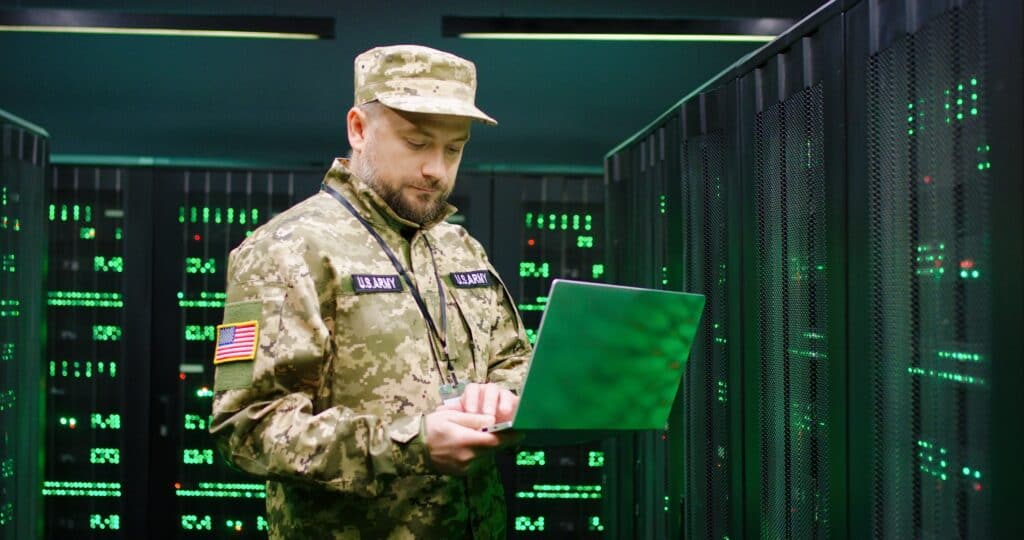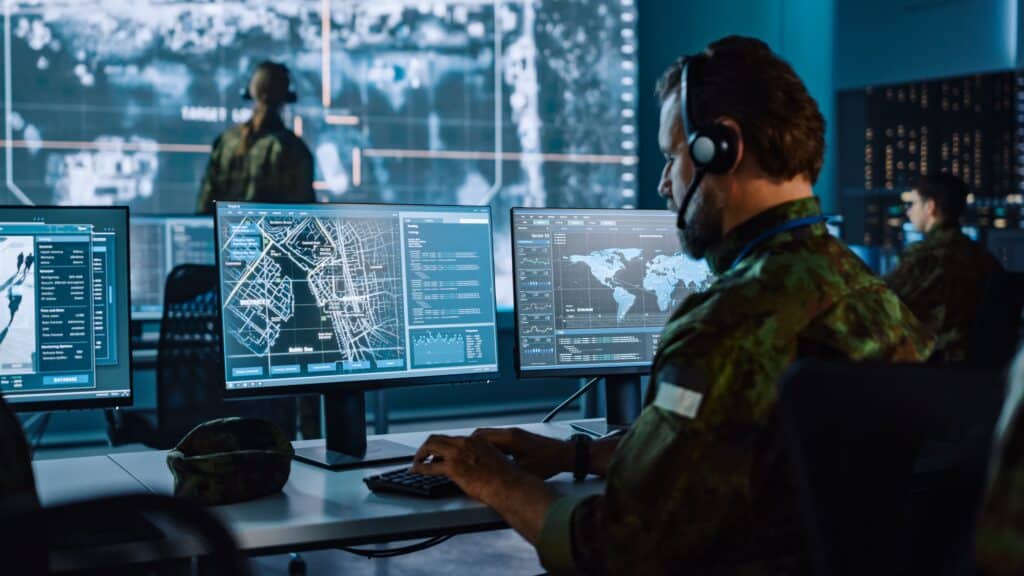- The military has its sights set on quantum technology
- Quantum sensors can detect stealth submarines over large distances
- Quantum supremacy and the impact on military communications
Quantum technology is a rapidly advancing field that promises to revolutionise various aspects of our lives. From super-fast computers to ultra-secure communication systems, the potential applications of quantum technology are nearly limitless. The military, in particular, has a keen interest in this field, as quantum technology can give them an edge in areas like intelligence gathering, cryptography, and battlefield communications. For instance, quantum sensors can easily detect stealth objects, while quantum computers can break even the most sophisticated encryption methods. In this article, we will delve into the fascinating world of quantum technology and explore its potential applications in the military.
The military has its sights set on quantum technology
The military sector is no stranger to experimenting with emerging technologies. In fact, many of the technologies that we now use on a daily basis were first put to the test by the military, even if they were not originally developed for military purposes. Probably the most famous example is something most of us today couldn’t even imagine doing without: the internet. Many people are probably not aware of the fact that the earliest version of the internet was essentially a communication experiment that took place in 1969, in which the US government’s Defence Advanced Research Projects Agency (DARPA) sent a message from one computer to another. With this in mind, it stands to reason that the military has now got its sights set on quantum technology, which could have a transformative impact not only on the future of the defence industry but on society as a whole.
It’s worth pointing out, however, that quantum technology is unlikely to lead to the emergence of new military capabilities, at least not yet. What it could do, though, is enhance some of the existing ones. According to a US Department of Defense board of scientific advisors, the promising applications of quantum technology in the military sector include quantum sensing, quantum computers, and quantum communications. “Navigation is the most mature element of quantum tech in defence”, says Daniel Jones, research manager at GlobalData. “In fact, technically, atomic clocks are quantum technology and have been in use for many years”.
For example, should GPS become unavailable for some reason, quantum sensors would enable the military to keep their operations running without interruptions. They could also have promising applications in intelligence, surveillance, and reconnaissance, enabling the military to detect submarines and stealth aircraft, for instance. Military communications could also be severely impacted by quantum technology. For example, by using quantum key distribution, an innovative communication method that implements a cryptographic protocol based on the principles of quantum mechanics, the military could keep its communications secure from unwanted access. At the same time, quantum computers could enable the military to intercept and decrypt communications of its adversaries.

Quantum sensors can detect stealth submarines over large distances
The concept of nuclear deterrence relies on the assumption that the threat of retaliation with devastating nuclear weapons is so great that it will dissuade any potential aggressor from launching a nuclear attack against another nuclear power. Ultra-quiet submarines armed with nuclear missiles play a key role in maintaining this balance of power between nations with nuclear capabilities. Even if one nation were able to carry out a successful nuclear strike against another nation, nuclear submarines would still be able to survive this attack due to the fact that they operate underwater and are nearly impossible to detect. This would enable them to launch an equally deadly retaliatory strike against the attacker, making their supposed victory rather short-lived. However, new quantum sensing systems threaten to upset this delicate balance and undermine the very idea of mutually assured destruction.
Researchers at the Chinese Academy of Sciences recently announced they were able to build a new superconducting quantum interference device (also known as SQUID), which can detect stealth submarines over large distances. A SQUID is essentially a type of magnetometer, a device that measures anomalies in the Earth’s magnetic field. The technology has been used to hunt for submarines for years but is extremely sensitive and easily disturbed by background noise, such as that caused by distant solar storms, which means that it’s only effective at a relatively short range — up to a few hundred metres. However, the new magnetometer uses an array of SQUIDs to eliminate some of that background noise, allowing it to detect a sub from as far as 6 kilometres away. While it remains to be seen when the device will be ready for deployment, it could potentially give China an edge in the ongoing power struggle.
“In the military, where you’re sending extremely sensitive classified data from one office to the next, you want to make sure that no one’s going to be able to break into and decrypt that. Well, quantum key distribution is definitely a way in which to carry that out”.
Arthur Herman, the director of the Hudson Institute’s Quantum Alliance Initiative
Quantum supremacy and the impact on military communications
Quantum computers are already much faster than classical computers but there will soon come a time when they will be able to perform tasks that are virtually impossible for even the most powerful classical computers to accomplish in a reasonable amount of time. While it’s difficult to say with certainty when exactly quantum supremacy will happen — some experts estimate it could be as soon as 2030 — when it does, all existing encryption methods will become obsolete. Naturally, this will also have a significant impact on military communications, forcing the sector to look for alternative encryption methods that would be able to protect its communications from quantum computers.
The NATO Cyber Security Centre (NCSC) recently joined forces with the UK deep-tech startup Post-Quantum to conduct a test of secure communications flows using a virtual private network that combines both new post-quantum and traditional encryption algorithms. These keep communications secure and ensure that only the intended recipient can actually read the message. “Securing NATO’s communications for the quantum era is paramount to our ability to operate effectively without fear of interception”, says Konrad Wrona, principal scientist at the NCSC. “With the threat of ‘harvest now and decrypt later’ looming over secure communications, this is an increasingly important effort to protect against current and future threats”.
Similarly, the Indian Ministry of Defence is also looking into more secure communication methods, submitting a formal request to QNu Labs to develop an advanced communications solution based on quantum key distribution. In quantum key distribution, two points in the communications chain are connected with an unhackable quantum link generated by a quantum random number generator. When someone attempts to intercept the communication, the link is automatically severed and the parties can then use the quantum random number generator, which is embedded in both ends of the link, to generate a new unique link and restart the communication. “In the military, where you’re sending extremely sensitive classified data from one office to the next, you want to make sure that no one’s going to be able to break into and decrypt that”, says Arthur Herman, the director of the Hudson Institute’s Quantum Alliance Initiative. “Well, quantum key distribution is definitely a way in which to carry that out”.

In closing
Like any other disruptive technology, quantum technology brings exciting new opportunities but introduces new vulnerabilities and security risks as well. As such, it’s hardly surprising that the military sector is interested in exploring its potential military applications. Quantum technology has the potential to revolutionise military operations in numerous ways, ranging from highly secure communication networks to new sensing systems capable of detecting stealth objects. However, it also threatens to disrupt the delicate balance of power that has been carefully maintained for years and could thrust the world into another major conflict. It is therefore essential that the military and policymakers consider the ethical and strategic implications of these developments and take steps to ensure that the technology is used in a way that doesn’t endanger humanity.
Share via:


